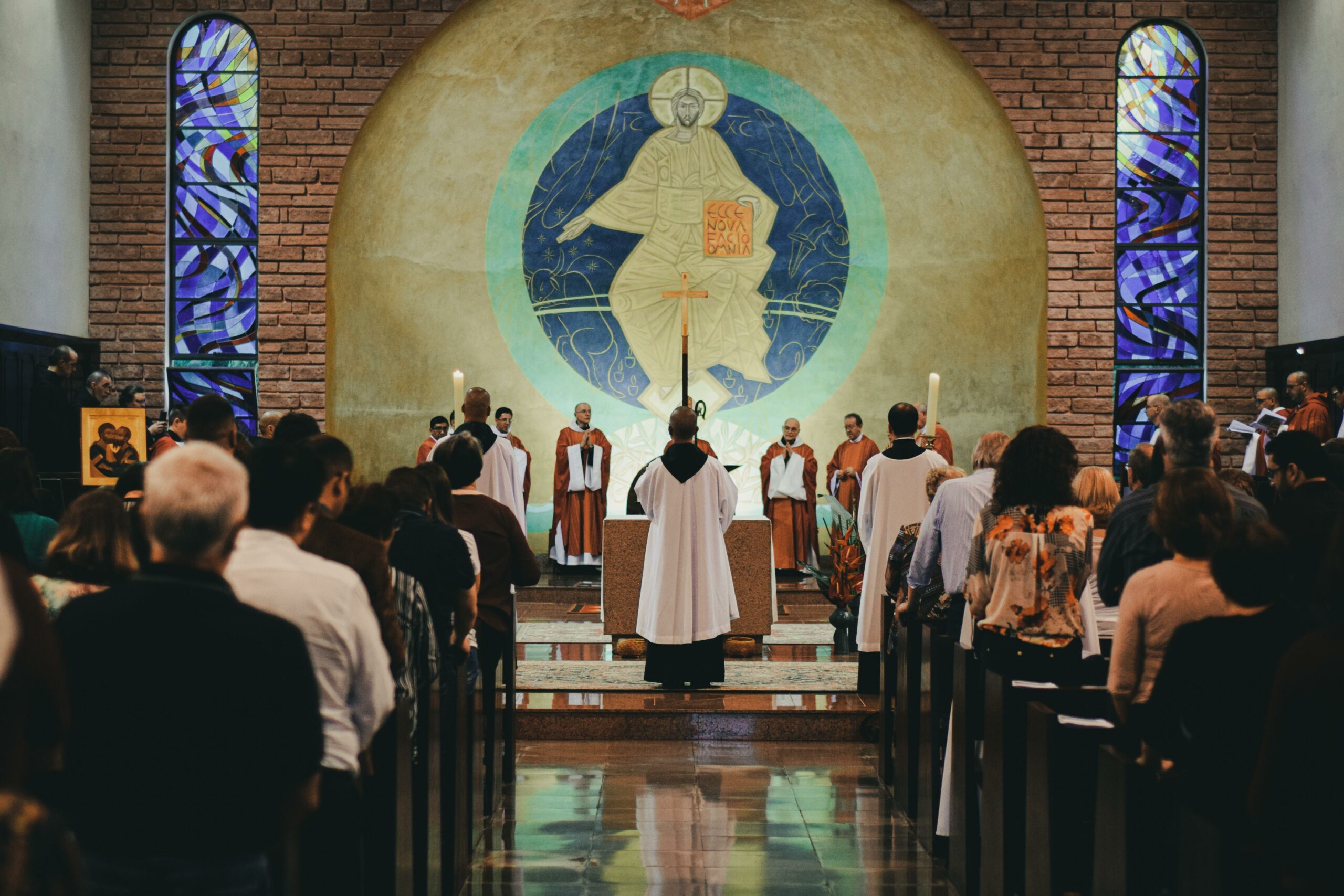Get ready to delve into the captivating world of religious perspectives on the Eucharist, as we embark on a profound journey of exploration. As a seasoned theologian and academic researcher in religious studies, I have dedicated my life’s work to unraveling the intricate depths of various religious beliefs and practices. In this article, we will unravel the significance of the Eucharist, examining it through the lens of diverse religious perspectives. Brace yourself for a captivating analysis that will shed light on the profound symbolism, historical contexts, philosophical implications, and the powerful impact this sacred ritual has on the faithful. Join me as we uncover the hidden treasures of the Eucharist, offering a comprehensive and unbiased understanding within the wider theological landscape. So, let us immerse ourselves in this enlightening journey into the religious perspectives on the Eucharist.

Religious Perspective on the Eucharist
When it comes to understanding the Eucharist, we are met with a myriad of religious perspectives that offer profound insights into its significance. From the belief in transubstantiation to viewing it as a symbolic re-enactment of the Last Supper, each perspective brings its own unique interpretation to this sacred ritual. Let’s delve into the diverse religious perspectives on the Eucharist and explore the depths of its profound impact on the faithful.
Catholics and Transubstantiation:
For Catholics, the Eucharist holds a particularly significant place in their religious practices. They view the bread and wine as undergoing transubstantiation, where they are truly transformed into the actual flesh and blood of Jesus Christ. This belief stems from the words of Jesus Himself during the Last Supper when He proclaimed, “This is my body” and “This is my blood.” Through this perspective, the Eucharist is seen as a powerful means of spiritual nourishment and communion with the divine.
“Catholics believe in the transformative power of the Eucharist, where the bread and wine become the very essence of Christ’s body and blood. This belief underscores the profound spiritual connection that Catholics experience during the sacrament.”
Symbolic Commemoration:
On the other hand, many Christians view the Eucharist as a symbolic re-enactment or commemoration of the Last Supper. In this perspective, the bread and wine symbolize the body and blood of Jesus, serving as powerful reminders of His sacrifice on the cross. Through partaking in the Eucharist, believers express their faith in Jesus’ redemptive work and their commitment to following His teachings.
“For those who see the Eucharist as a symbolic re-enactment, it becomes a powerful act of remembrance, symbolizing Jesus’ sacrifice and the new covenant established through His death.”
Memorial Action and New Covenant:
Regardless of their particular beliefs about the nature of the bread and wine, all Christians agree that the Eucharist is a memorial action, recalling what Jesus said and did during the Last Supper. This memorial aspect of the Eucharist allows believers to connect with the life and teachings of Jesus, fostering a sense of unity with the faithful across time and space. Moreover, the Eucharist holds deep significance as a sign of the new covenant given by God, signifying freedom from the bondage of sin and the promise of eternal life.
“Through the Eucharist, Christians partake in a memorial action that bridges the gap between the present and the past, uniting believers in their shared faith and commitment to Christ. It symbolizes the new covenant, reminding us of the freedom and eternal life promised through Jesus.”
In exploring the religious perspectives on the Eucharist, it becomes evident that this sacrament holds immense spiritual and theological significance. Whether one believes in the transubstantiation of the bread and wine or sees it as a symbolic commemoration, the Eucharist remains a powerful means of connecting with the divine and deepening one’s faith. Through its rich symbolism and historical roots, the Eucharist continues to nourish and sustain the faithful across diverse religious traditions.
“By understanding the various religious perspectives on the Eucharist, we gain a comprehensive view of its profound impact on faith and spirituality. It serves as a unifying force, celebrating Christ’s sacrifice and offering believers a taste of the divine.”
To further illustrate the differences and similarities among religious perspectives on the Eucharist, let’s take a look at the following table:
| Religious Perspective | View on the Nature of the Eucharist | Symbolic Meaning |
|---|---|---|
| Catholics | Transubstantiation | Presence of Christ |
| Other Christians | Symbolic Re-enactment | Remembrance of Christ’s Sacrifice |
The Eucharist holds profound significance in the Christian faith, with important facts that every believer should know. Discover the deep spiritual meaning behind this sacred sacrament and uncover its historical significance. Whether you are a longtime believer or new to the faith, exploring these important facts about the Eucharist will undoubtedly enrich your understanding and strengthen your relationship with God. So, dive into the fascinating world of the Eucharist by clicking here: important facts about the eucharist.
FAQ
Q: What is the significance of the Eucharist in Catholicism?
A: In Catholicism, the Eucharist holds great significance as it is believed to undergo transubstantiation, where the bread and wine transform into the actual body and blood of Jesus Christ. This sacrament is seen as a way to spiritually nourish the faithful and unite them with Christ’s sacrifice on the cross.
Q: How do Christians who view the Eucharist as a memorial action understand its symbolism?
A: Christians who view the Eucharist as a memorial action see its symbolism in the bread and wine, which represent the body and blood of Jesus Christ. By partaking in this sacrament, believers commemorate the Last Supper and remember the sacrifice of Jesus for the forgiveness of sins.
Q: What does the Eucharist symbolize in the context of the new covenant?
A: The Eucharist symbolizes the new covenant given by God to humanity. It signifies freedom from the slavery of sin through the sacrifice of Jesus Christ, offering believers the promise of eternal life. This sacrament serves as a reminder of God’s unending love and the opportunity for spiritual renewal.
Q: How does the Eucharist impact the faithful in their religious journey?
A: The Eucharist has a profound impact on the faithful as it provides a tangible experience of encountering the divine. Through partaking in the body and blood of Christ, believers believe they are nourished spiritually and united with Jesus in a unique way. This sacrament strengthens their faith and deepens their relationship with God.
Q: How does a comparative religious studies perspective contribute to understanding the Eucharist?
A: A comparative religious studies perspective enriches the understanding of the Eucharist by exploring its significance across different religious traditions. By analyzing various perspectives, scholars can identify common themes, divergences, and historical nuances surrounding the sacrament. This broader perspective allows for a comprehensive and unbiased analysis of the Eucharist in the wider theological landscape.
“`json
“`
- Senior at What Age: Benefits & Eligibility Guide - March 29, 2025
- Unlocking Senior Benefits: How Old is a Senior? Your Complete Guide - March 29, 2025
- Master Russian Politeness:A Guide to Saying Please - March 29, 2025
















